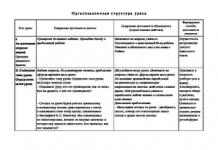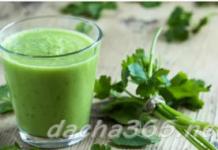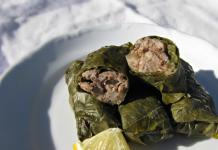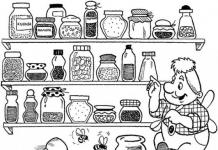14.02.2018
Since drinking water is an essential component of nutrition for all living organisms, from single-celled bacteria to homo sapiens, it is important to use it wisely for the benefit of life. Before you pour it out into the street again, think about what such treatment could lead to?

Some details
Fresh water reserves on the planet are rapidly declining. Qualified ecologists tirelessly broadcast this, calling on the inhabitants of the Earth to reconsider their habits and not pour out jugs of life-giving moisture recklessly. According to average statistics, the average Muscovite uses more than a hundred liters per day! This is not only a simple quenching of thirst, but also preparing food, hot drinks, bathing and showering, using the toilet and much more. If you multiply this figure by the number of residents of the capital, you may be horrified by the resulting amount. In the world, only 1% of the total water reserves are suitable for domestic use. Salty seas and oceans cannot be processed and used for food, and many technical tasks cannot be performed with their help. Having made simple calculations, you can understand that soon even the usual water cycle and water treatment will not be able to save us from environmental disaster.

What does the future hold?
Much-needed water supplies cannot be replaced with anything else. Biologists testify: the human body consists of more than half liquid, and a decrease in its quantity inevitably leads to death. Animals and plants will also not be able to survive in drought for more than a few weeks, so the complete disappearance of drinking resources will mean the death of all life on the planet. If we look at the problem on a smaller scale, the lack of moisture will negatively affect the development of the industrial industry. Many factories and industries will not be able to operate without the energy generated by hydroelectric power plants.

Where to start a useful business?
First of all, review your habits. Between taking a bath and simply washing yourself in the shower, it is better to choose the second option. It will not only reduce water consumption, but will also give you a boost of energy for the coming day. Purchase specialized plumbing parts, the purpose of which is to reduce not only resource consumption, but also save on plumbing bills. public utilities. By the way, it is worth noting that the reduction in the amount of drinking water on the planet is directly proportional to the increase in tariffs. The more each person consumes liquid, the higher its cost will be for individuals and legal organizations. Don't want to pay crazy amounts for your morning wash? Then it is necessary to make some changes to the usual pattern of life. Are you going on vacation to the lake? Do not litter reservoirs and shores with waste residues, various garbage and unnecessary things after a fun pastime. The operation of filtration stations also affects the prices of housing and communal services. Be responsible not only for yourself - tell your children and family members about correct behavior. Serve correct example colleagues and surrounding people. If every person becomes more responsible and approaches the issue of water consumption more intelligently, we will certainly be able to avoid environmental problems and improve your standard of living.
“Water must be conserved,” parents and teachers say, at home and at school. They write about this in books and print in newspapers. But this teaching looks very strange. Why take care of it, if there is so much of it around?
At home I turned off the taps - it flowed, with good pressure, in a wide stream. If you want it cold, if you want it hot. Cook food, bathe, do laundry as much as you like. Got dirty on the street while playing football - there's a water pump nearby. I pressed the lever and the water flowed like a river, washing and splashing as much as you wanted. And around the city and outside the city - there are so many lakes, rivers, ponds. And the sea! If you go to the sea in the summer, you generally stop understanding why you need to protect it so much, this water, if there are huge volumes of it, everywhere you look.
Now let's count more specifically. Each person drinks about one and a half to two liters of water daily. Yes, plus soup, and also tea, coffee, all sorts of compotes. This is only inside. Hundreds of liters a day are spent on washing, bathing, and other needs of each of the residents apartment building. And in the village we also water the cows and sheep, and water the garden every evening in hot weather. Water also moves the blades of electric turbines, generating energy for us, and also carries huge ships on its waves. And how much water is used in any production! For cooling, moisturizing, washing. Tons, tens of tons, hundreds of thousands of tons every day.
Now let's look at our planet. No, not the Universe - it is just infinite. What about the planet, Earth? It has northern and southern extreme points, western and eastern. That is, it is limited in size, whatever one may say. And, therefore, it is also limited natural resources. Imagine for a moment: the water may run out! At the same time, all over the planet. That is, absolutely, completely. You can’t go to your neighbors to fill the kettle with water, you can’t wash yourself at the water pump, and they won’t give you the water or sell it to you for any of the riches in the world. Introduced? And how? Not really, right? Well, you can wash yourself and wait. How about making soup? Just take a fresh sip clean water, coming from training or returning home from a hot street. Meanwhile, within one day, that is, twenty-four hours, humanity uses—think about it for a minute—seven billion tons of water! It’s even scary to imagine such a number, not to mention saying goodbye to it forever.
What can I say - on our planet they already exist settlements, countries and even entire parts of continents where people suffer from water shortages. And rest assured: there they don’t spend it so thoughtlessly, they save every drop and very accurately calculate how much and when they will spend it. So that all humanity on Earth does not soon have to count every drop of water, it is extremely necessary to conserve water. Close the taps as soon as you stop using water, and use it sparingly for any needs. And, of course, try not to pollute any body of water, be it a river, lake or pond - each of us will have to drink from the same one at some point.
Bibliographic description: Taraleva E. A., Davydova G. Yu. Is it necessary to save water? // Young scientist. 2016. No. 5. P. 94-96..08.2019).
One hot summer day, my friends and I were playing tag. At some point I became unbearably thirsty. I was so thirsty that I forgot about interesting game, and about everything in the world. All I could think about was pounding in my head: Drink! Drink! Drink!!! While I was skipping up to the fourth floor, it seemed to me that everything was dry inside me... I was very dizzy. At home, I drank two glasses of water and washed my face. She immediately came to life. And then I looked for a long time at the thin stream of water flowing from the tap, and I had several questions:
- What is this amazing substance that can bring the body back to life?
-Where does water come to us from?
- what should you do to never run out of water?
These questions interested me very much, and after consulting with the teacher, I decided to carry out research work“Is it necessary to conserve water?”
“Earth is a planet of amazing blue!” That’s what all astronauts say when returning from distant Space.
Relevance: People need water every day, so it is very important to use it rationally and carefully, since its reserves on Earth are not so limitless.
Research problem: Find ways to save water and keep water resources clean.
Thus, we definepurpose of the study:
- clarify and expand knowledge about water and its importance for living beings; To achieve the research goals, you will need to solve the following tasks:
- analyze scientific information on the topic;
‒ develop conditions for a careful and economical attitude to water;
- conduct research on the quality of drinking water;
- create a reminder about caring for water at home.
Research hypothesis: I can assume that if every person tries to use water carefully and economically, then we will be able to preserve the water resources of our planet. Object of study: fresh water; Subject of research: water is the most valuable treasure of our planet;
Water - the only substance in the world that can exist in three states: liquid, solid and gaseous. This alone makes her extraordinary and amazing. In addition, it turns out that water has unique properties: perceives information, remembers it, reacts to words, thoughts, music.
I was wondering how water gets into our house?
Before entering the taps of our bathtubs and washbasins, the water passes through a pipe. The dam holds the water stored in the reservoir - the place where water is collected for the entire city. This water is collected either from a well or from a river.
By big pipe, water flows from the reservoir to the pumping station. At the pumping station it undergoes a purification process. After all, in its original form, water is not suitable for consumption, which is why it needs to be purified in the reservoirs of the pumping station. At first, the water passes through special grates that clean it of large debris, then it enters the sump. In the sump, at the bottom of the tank, foreign impurities in the water settle. In the next tank, the water undergoes a chemical treatment process in order to kill the microbes in it.
In the basement, water is distributed through pipes with a diameter of 20 mm to the entrances and apartments. Our apartment has a water meter. Water entering the apartment first passes through it to read the amount of water used. From the meter, water passes through a pipe through a filter rough cleaning, a fine filter, where it is cleaned and enters the apartment.
Sometimes, when there is low pressure, cloudy water with some impurities flows from the taps. Perhaps this is because our house is old and the pipes are accordingly the same. Water passing through them picks up rust and carries it to the taps.
It is dangerous to use such water for drinking, so it must be further purified.
I conducted one study: how you can purify water at home. I took two vessels, a funnel and a filter. She poured cloudy water from the tap into one vessel and slowly began to pour the water through a funnel with a filter into another vessel. And I saw that the water, passing through a paper filter, became clean. And there are grains of rust and dirt left on the filter. After doing a little research, I did conclusion: The water needs purification, so our family uses the Barrier filter. We also buy ready-made purified water for drinking in 19-liter cylinders, which are sold in stores. Sometimes we bring water from a spring. This water is especially tasty and crystal clear.
From the Internet I learned that the planets revolving around the Sun have their own colors. Venus is white, Mars is reddish, Saturn is bluish. And our Earth looks blue in pictures from space. This is the color of its oceans and seas, and therefore the color of water.
There is both a lot and a little water on Earth at the same time. Ocean and sea water are not suitable for drinking because they are salty. Humans need fresh water, of which there is not much in nature. For every 100 liters there are only 3 liters of fresh water.
Man constantly consumes fresh water and needs to replenish it.
Water is used:
- in the kitchen: for cooking, washing dishes;
- in the bathroom: for washing clothes, taking a bath, showering, washing and brushing teeth;
‒ in the toilet: for operating the toilet.
Water is also necessary for watering plants, for filling an aquarium, for caring for pets, for washing floors, shoes, wiping dust and much more. But this is water consumption only in one family. And if you imagine how much water is required for the needs of our city, region, country? Humanity? Do we think about this when we turn on the tap?
There are places on the planet where there is already a shortage of drinking water, and it is brought in tanks or supplied to homes strictly on schedule.
Water needs to be saved, also because you have to pay money for it. In order to save money, a meter is installed in the apartment, by which you can control water consumption at any time. We have such a counter too.
Conclusion
A person can live up to a month without food, and no more than three days without water. “Water is more valuable than gold,” said the Bedouins, who spent their entire lives wandering in the sands. They knew that no amount of wealth would save a traveler in the desert if there was no water. The sands of the Sahara have swallowed up many people. A person can survive in the desert for about a day. The value of fresh water in human life is very great.
Conclusions : As a result of the study, my assumption was completely confirmed: if a person tries to use water carefully and economically, he will be able to save not only water supplies, but also the water resources of our planet, as well as the family budget.
In conclusion, I would like to say that let's learn to love water and save it. Water is the most valuable treasure of our planet.
The stated goals and objectives of the study have been achieved.
Literature:
- Children's Encyclopedia, M. "Rosman", 1994–130 pp., ill.
- Children's Encyclopedia, 2nd ed., revised, M. "Swallowtail", 2007–123 pp., ill.
- World and Man, A. A. Vakhrushev, 2 - ed., M. “Drofa”, 1999–90 pp., ill.
- The world around us, A. A. Pleshakov, 9th ed., M. “Enlightenment”, 2009–156 pp., ill.
- http://exlyziv.ru/ekonomiya-vodyi-v-byitu.html
- http://viki.rdf.ru
- http://eltern.ru
I was washing the dishes in the morning, the doorbell rang, and I ran to open it. While I talked to my neighbor for a few minutes, I come into the kitchen and notice that I forgot to turn off the tap. I don’t know how much water flowed out in vain, but I think it was a lot. I am sure that each of us has had similar cases. It’s hard to even imagine how many situations occur in the world in which water resources are wasted...
Why save water
If you look at the globe, it may seem that there are enough water sources on Earth. This is partly true. But if you start to understand, it turns out that humanity needs precisely fresh water reserves, and not the World Ocean. Such sources are rivers and lakes, some glaciers, reservoirs, etc.

Fresh water sources are non-renewable resources, i.e. at some point in time they may disappear completely. Humanity must look for new ways to obtain drinking water. In addition, it is necessary to preserve existing sources of fresh water.
How everyone should save water
Every person should be aware of the importance of conserving water resources. Only through joint action can the best results be achieved. It’s not difficult to follow a few basic rules for conserving water at home:

Of course, hygiene procedures are important for a person, and they should not be abandoned. When I talk about saving water in the home, I don't mean that you should stop washing your hands, brushing your teeth, and maintaining personal hygiene. This is not true at all. Every person just needs to ensure that they use drinking water wisely.
Latypov G.T. 1
Baygudinova A.M. 1
1 Municipal budget municipal institution secondary school No. 19 of the city of Krasnogorsk
The text of the work is posted without images and formulas.
Full version work is available in the "Work Files" tab in PDF format
Goals:
Understand the meaning of water
Know information about sources of water pollution
What sources of pollution can children be exposed to?
Teach children to conserve tap water.
Skill building moral behavior in nature.
Tasks:
Develop the ability to work with different sources of information on a given topic, select material, choose the main thing, draw conclusions;
To form in children the concept of water as a source of life and health, a means of hardening and personal hygiene;
Foster a caring attitude towards water and a desire to take care of your health.
The topic of the study is “Why do we need to save water?” We did not choose by chance. We carried out a large targeted preparatory work: in natural history lessons we carried out practical work to study the properties and qualities of water. We established contact with the objects of study at the Moscow Museum and observed how wastewater treatment plants work.
Motive for choosing a topic. Man undoubtedly influences nature. And his actions are not always beneficial. There are many examples of the harmful consequences of human economic activity, and they can be drawn from ancient times. In the 5th century BC, the Persian king Cyrus crossed the Diala River with his army (west of modern Iran). During the crossing, the king's favorite horse drowned; it was carried away by a stream of water in front of the owner's eyes. The angry king ordered the soldiers to punish the river. According to the king's word, 360 canals were dug. Within about a year, the water receded, and then drought hit the peasants' fields. The places became barren, the peasants were forced to leave these places. It took more than 1000 years for a weak stream to appear in the place of the once full-flowing river, but it has not yet turned into a normal river. Now geographers classify this area as semi-desert.
The insane exploitation of natural waters causes the depletion of fertile moisture. Human waste - industrial and domestic waste - is dumped into rivers, seas and oceans, which leads to the depletion of water resources.
Relevance. Currently there is a water problem. 2/3 of the world's population lacks drinking water. Every year, 5 million people in developing countries die from diseases associated with poor water quality.
Water is a good friend and helper of man. Humanity uses the waters of the World Ocean, they play vital role in energy production. There are power plants that use the power of surf and waves. This liquid is needed not only to maintain human life. Without it, not a single sphere of production is conceivable.
Water! Blue, tender, clean! What could be better than her? She gives life to all living things. Water is part of every cell! But in everyday life and at work we need not just any water, but fresh water.
Is it possible to live without water? With such disdain for this tasteless, colorless and at the same time priceless! Only residents of large cities can relate to the substance. Those who grew up in the countryside know how hard it is to get drinking water... But say something in such a dismissive tone to a desert dweller... After all, we don’t even think about oxygen as long as we can breathe easily. And as soon as we lose it, we are ready to give everything we have for a breath of clean, fresh air. Have you thought about it? Now we will talk about WATER.
How old do you think the Moscow water supply system is?
Let's imagine what it was like to live in Moscow 200 years ago, when there was no trace of this very water supply? In fact, at a time when people were just beginning to settle on the banks of the Moscow River, problems with cleanliness drinking water there wasn't. Even half a millennium ago, the forested and swampy territory of modern Moscow and its immediate environs was dotted with valleys of rivers and streams, of which there were several hundred! Alas! As a result of man's thoughtless attitude towards nature, this hydraulic system has been practically lost. Nevertheless, in addition to the three main rivers - the Moscow River, the Yauza and the Neglinnaya, practically hidden under the thickness of the “cultural” layer, there are more than 50 in modern Moscow! small rivers..
HISTORY OF MOSCOW WATER PIPELINE.
Until 1804 (note, this year marks the 200th anniversary) Muscovites drank water from the Moskva River, Neglinka and other rivers flowing through the city. However, it would be wrong to say that before this time there was no water supply system in Moscow. Rich people dug wells and entire ponds in the courtyards of their city estates, stocking up on water for both drinking and household needs. The water of Presnensky Ponds, for example, was once considered the best in Moscow and was used for the table of Tsar Alexei Mikhailovich himself! But they didn’t just drink from the rivers. The waters of the rivers turned the wheels of the mills, grinding the grain brought to Moscow into flour. On the banks of rivers and ponds, bathhouses were built, so beloved by the Russian people... They swam in the rivers, washed clothes, and household wastewater and waste water from handicraft industries fell into them. Gradually, the reservoirs turned into dirty ditches. And finally, the growing city simply didn’t have enough clean water.
The Moscow Museum of Water is located in the ancient Moscow area of Krutitsy - on the territory of the building in which the Main Sewerage Works was located since July 18, 1898 pumping station capitals. The museum exposition shows the entire complex path that passes natural water, before getting into the apartments of Muscovites and on industrial enterprises, and then return to nature after use.
Water purification and conservation have been practiced since ancient times. (Appendix 1)
The museum contains most interesting materials introducing the history of creation, current state and prospects for the development of one of the oldest life support services of the city, the Moscow water supply and sewerage system. The exhibition tells about the first Kremlin water pipelines operating during the reign of Ivan Kalita, Ivan III, Mikhail Romanov, about the stages of construction of the Mytishchi water pipeline, built by decree of Catherine II, about the commissioning of the first sewerage system in the central part of the city, the first water station in the Rublev area, the first biological wastewater treatment plant, Kozhukhovskaya aeration station. Demonstrates how their technical equipment has changed over time and technology has improved.
The situation with sewerage is no easier: after going through five stages of purification, water from toilets again ends up in rivers - quite complex system, about which little is written for reasons of decency. If this whole process is described in detail, few people will want to drink tap water after this. First, moisture is passed through debris-retaining grates. Then it sequentially enters “sand traps” (cleansing sand), “primary radial settling tanks” (where dirt settles to the bottom), and huge sludge containers (these are accumulations of microorganisms that process organic pollution). Then - secondary settling tanks, and again into the river
We put forward the following hypothesis: There is very little fresh water on Earth, and if it is not conserved, it may run out in tens of years.
It’s not for nothing that the Earth is called the blue planet.
In rivers the water is unsalted, and in the seas it is salty. Why is sea water so different from river water? In oceans, seas and some large lakes, water contains various mineral salts that are washed out of the earth's crust. Therefore, sea water is salty and undrinkable.
There is very little fresh water on Earth, and if it is not conserved, it may run out within tens of years. We learned what types of lakes there are and that most of the fresh water is in the glaciers of Antarctica, and that the amount of fresh water is catastrophically declining. The quality of water is deteriorating; if 20 years ago you could drink water from the tap, now you can’t.
If you spin the globe, it is almost all blue, water makes up 71% of the total surface of the Earth, but only 3% of these reserves is fresh water.
On our territory there is the deepest and cleanest lake in the world - Baikal. (Baikal contains 25% of the world's fresh surface water.
In ancient times, the inhabitants of Buryatia animated nature. Man preserved nature in its pristine beauty and purity.
But Lake Baikal was considered the holiest in all centuries. The indigenous people sacredly revered ancient customs and always brought gifts and offerings to the owner of Baikal, throwing money into Baikal. Each source was sanctified.
Baikal water is unique and amazing, like Baikal itself. It is unusually transparent, clean and saturated with oxygen. Not long ago people used it healing properties for the treatment of diseases.
There are 58 species of fish in the lake. The most famous are omul, whitefish, grayling, taimen, sturgeon, golomyanka, lenok. About 2,000 plant species grow on the coast of Lake Baikal. 200 species of birds nest on the banks. In Baikal there is a unique, typical marine mammal - the Baikal seal.
The age of this greatest gift of nature, the repository of a fifth of the Earth's surface fresh waters, is approximately 25 million years old.
Forests are burning and being cut down National parks, oil wells were drilled in the Selenga delta. The Baikal Pulp and Paper Mill operates, poisoning everything around it. Poaching has reached unprecedented proportions; hordes of irresponsible vacationers litter the shores of Lake Baikal with garbage.
Water is the source of life, it surrounds us, it is everywhere, without it there would be no life on earth. The word “source” means that from which something comes, begins, and serves as the basis for something. Scientists claim that life on Earth originated in water.
A person weighing 70 kg contains almost 50 kg of water; 85% of water is contained in our brain, 7% in muscles, 80% in lungs and kidneys. To understand how important water is for us, everyone needs to roughly measure how much water they use in one day.
Family of 3 on average per day spends:
50 liters of water is used for sanitary and hygienic purposes
2-3 liters are spent on cooking
Total: the approximate water consumption per day is about 50-60 liters.
Water reserves in the human body are constantly being used up. Therefore, they need to be continuously replenished. A person can live long enough without food and only two or three days without water.
A person loses about 15 glasses of water per day. This means that he needs to drink the same amount of water (in the form of soups, various drinks).
Water is an indispensable means of hardening the body. The most powerful way of hardening is swimming and bathing.
Remember: May your life path be long and healthy,
Don't forget about water in your diet.
What helps us defeat germs?
Remember the second rule
From plain water and soap
Microbes are losing their power.
You need to remember forever:
The key to health is cleanliness!
Remember the third rule
Start dousing yourself with cold water,
And all microbes will be afraid of you.
When swimming, water pressure improves breathing, which improves blood circulation in the internal organs. Swimming increases the hemoglobin content in the blood. Water also acts as a natural massager, improving skin nutrition. Swimming has a beneficial effect on the digestive organs and nervous system, trains the heart and muscles.
If the tap is left open, clean water is wasted.
From an open tap, clean water flows into the sewer, where it mixes with dirty slurry. To get clean water from this slurry, people put a lot of work into building special treatment facilities.
These structures are literally overwhelming huge amount Very dirty water. They are working to the limit. If the tap remains open, then not only is clean water wasted in vain, but also the amount of dirty water increases, which means the load on treatment facilities. While tap water is safe to drink, its quality is deteriorating from year to year.
We learned that there is an industrial method for water purification.
Model of a snow rafting point. For processing and cleaning snow, it is equipped with three hammer crushers and a sand catcher. Melted wastewater the snow mass is sent to the aeration station.
The Moscow River is polluted. There is a special organization “Greenpeace” that protects nature and ecology. We must continue to protect the nature of our native land. Industrial development should not contribute to more intense environmental pollution.
Humanity began to run out of water not only in deserts and countries with arid climates, but even where there seemed to be fresh water - an overflowing sea! This is caused by natural, environmental, and social factors. There is less and less water suitable for drinking. In addition, more and more money is required to clean it. With melt water, manure enters small rivers flowing into the Moscow River and into the reservoir system. Man and the industry he has created pollute what little remains clean. And there are more and more people on the planet, and especially in cities, in megalopolises. A lot of harm is caused by dachas and cottages built without permission on the banks of reservoirs.
Many of our lakes are also littered, the forest is littered. By destroying forests, cutting off the supply of rivers and lakes during construction railway, we currently have shallowing of rivers, the disappearance of many lakes. Ecological balance destroyed natural environment- from here, all year round strong winds, dust, drought. With this attitude towards the environment, we will soon live in a desert.
As a result of water pollution, we may be left without drinking water.
This is a big problem. After all, there are already cities where water from the tap does not always flow, and people suffer from its lack. If you treat water with care and conserve it, then the time when there will be no clean water in your tap will never come. And remember the rule:
Be thrifty with water
And as soon as I took the water,
Close the tap properly!
Therefore, we encourage everyone to:
Do not pollute the territory of your native land and the environment.
Don't throw trash into the water.
Don't pollute water bodies!
Remember! Water is the source of life for humans, animals, plants
Save water!
References.
Application
1.Photos from an excursion to the Moscow Water Museum
2. Special issues of the magazine "Children's Encyclopedia" "Water pipeline from A to Z" and "Second life of water", prepared by the weekly "AiF" together with MGP Vodokanal.
We invite you to look at pictures from the excursion
Excursion to the Moscow Water Museum.
The water museum also displays a new type of apparatus. Its maneuverability is much higher, since it can not only swim, but also drive
It looks like a disk from an old telephone, but in fact it is a scale for determining the turbidity of water
Snow collection and cleaning


























